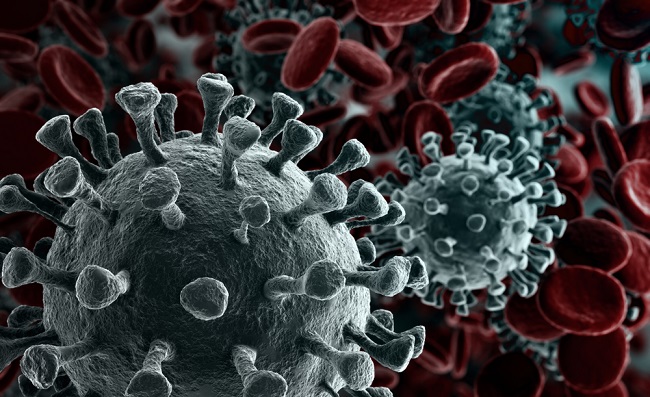High blood pressure and its drug treatment unlikely to increase entry of COVID-19 virus into cells
Published: 27 October 2020
Fears that people with high blood pressure are more at risk from severe Covid-19 because it is easier for the virus to enter their cells and tissues have been laid to rest, thanks to research by an international team of scientists
Fears that people with high blood pressure are more at risk from severe Covid-19 because it is easier for the virus to enter their cells and tissues have been laid to rest, thanks to research by an international team of scientists
The team led by University of Manchester, and including University of Glasgow researchers, also show that speculation over some blood pressure lowering medications that they increase the risk of Covid-19 infection, is likely to be wrong.

The study conducted on human kidneys, published in the European Heart Journal, will reassure doctors and their patients that it is safe to take their blood pressure medication during the pandemic.
Scientists already know that SARS-CoV-2 virus - which causes Covid-19 disease - uses a protein called ACE2 found on the surface of kidney and to a lesser extent lung and heart cells, as a way to infect the body.
Kidneys are the primary site for blood pressure regulation in the body. They naturally produce ACE2 at a higher level than many other tissues and are affected by the virus.
But the suggestion that ACE2 is modified by antihypertensive medicines, especially ACE inhibitors to make it easier for SARS-Cov-2 to break into cells, has been disproved by the team.
“There has been widely reported speculation that having high blood pressure and taking certain medications used to treat hypertension - especially ACE Inhibitors - may increase expression of the blood pressure regulating protein ACE2,” said Dr James Eales, from The University of Manchester.
“Many felt that increased expression of ACE2 may also increase the risk of infection - or a severe outcome from SARS-CoV-2” added Dr Xiao Jiang, from the University of Manchester.
Professor Tomasz Guzik from University of Glasgow said: “Age-related increases occur in the lungs explaining age as a risk factor for COVID-19 but also importantly – in the kidneys. This opens a new necessity to look at renal disease as a possible short term, as well as long term, consequence of COVID-19.”
Professor Fadi J Charchar from Federation University in Australia added: “We checked a range of antihypertensive medicines including, beta blockers, ACE inhibitors, Calcium Channel antagonists, Angiotensin II receptor blockers, and others; none are linked to changes in ACE2.”
ACE2 is a part of the renin-angiotensin system - essential for the regulation of blood pressure. In the kidneys, ACE2 sits on the surface of cells in the proximal tubule.
Hook like structures on the outside of the virus have a shape which resembles ACE2 and, along with other unrelated proteins, together act like a key into human cells.
Professor Maciej Tomaszewski, from The University of Manchester commented: “Our study provides strong biological evidence to support the advice from the medical authorities that people with high blood pressure should continue to take their blood pressure medications as prescribed.”
Professor Bryan Williams from University College London added: “The speculation about whether high blood pressure and the drugs we commonly use to treat it, increased the risks associated with Covid-19 infection caused a lot of anxiety for many millions of people treated for high blood pressure. This new research refutes the prior speculation that the drugs we commonly use to treat high blood pressure leads to an increase in the receptors for Covid-19 on the surface of the lungs. It is a really important finding.”
The team also discovered that ACE2 increases in the kidney as we age – though the relevance of that is not yet understood.
The study used gene expression data from up to 534 human kidney samples using RNA sequencing to study the effects of hypertension and medications for hypertension on ACE2 expression.
ali.howard@glasgow.ac.uk or elizabeth.mcmeekin@glasgow.ac.uk / 0141 330 6557 or 0141 330 4831
First published: 27 October 2020

